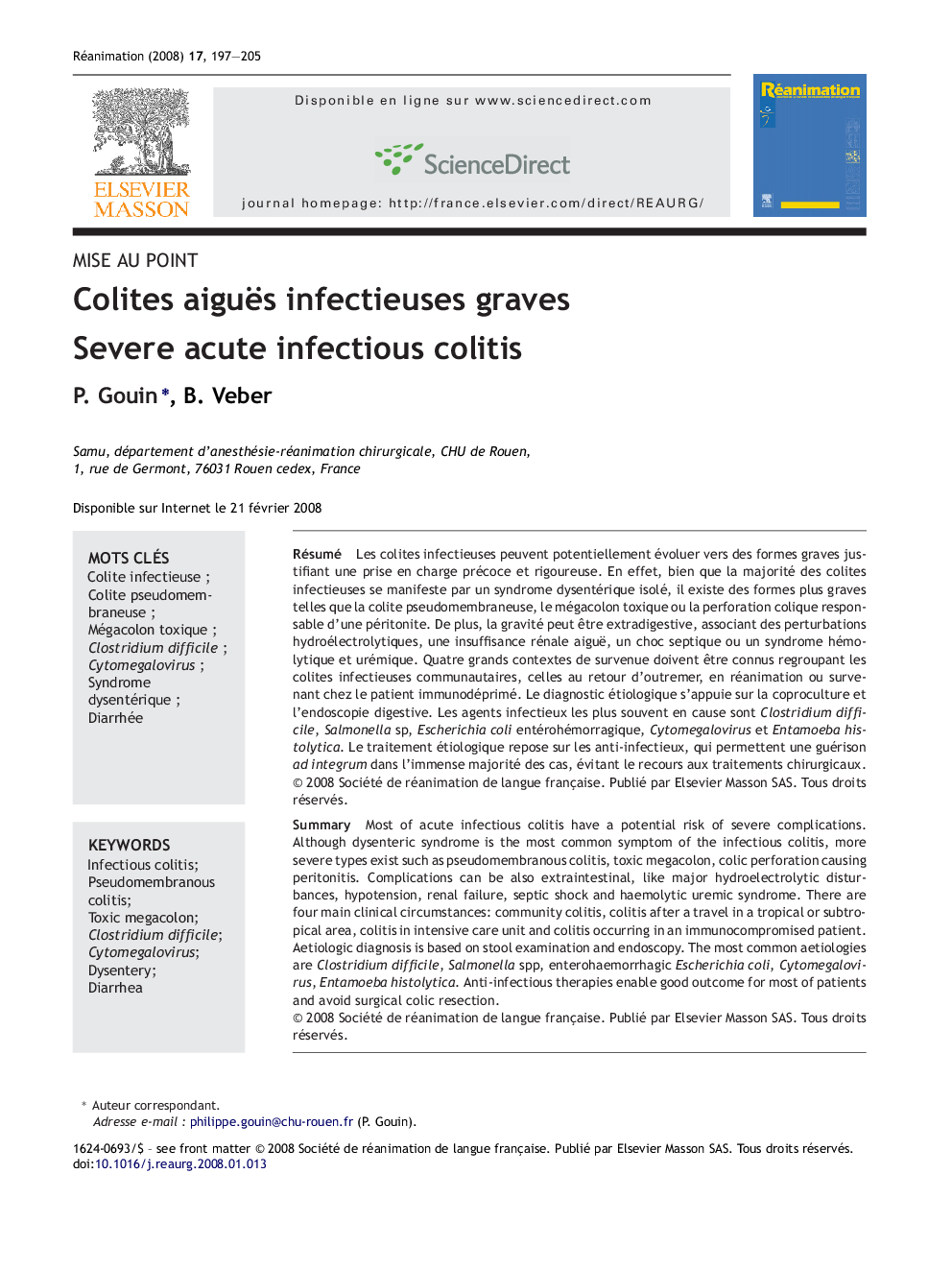| Article ID | Journal | Published Year | Pages | File Type |
|---|---|---|---|---|
| 2612979 | Réanimation | 2008 | 9 Pages |
Abstract
Most of acute infectious colitis have a potential risk of severe complications. Although dysenteric syndrome is the most common symptom of the infectious colitis, more severe types exist such as pseudomembranous colitis, toxic megacolon, colic perforation causing peritonitis. Complications can be also extraintestinal, like major hydroelectrolytic disturbances, hypotension, renal failure, septic shock and haemolytic uremic syndrome. There are four main clinical circumstances: community colitis, colitis after a travel in a tropical or subtropical area, colitis in intensive care unit and colitis occurring in an immunocompromised patient. Aetiologic diagnosis is based on stool examination and endoscopy. The most common aetiologies are Clostridium difficile, Salmonella spp, enterohaemorrhagic Escherichia coli, Cytomegalovirus, Entamoeba histolytica. Anti-infectious therapies enable good outcome for most of patients and avoid surgical colic resection.
Keywords
Related Topics
Health Sciences
Medicine and Dentistry
Emergency Medicine
Authors
P. Gouin, B. Veber,
